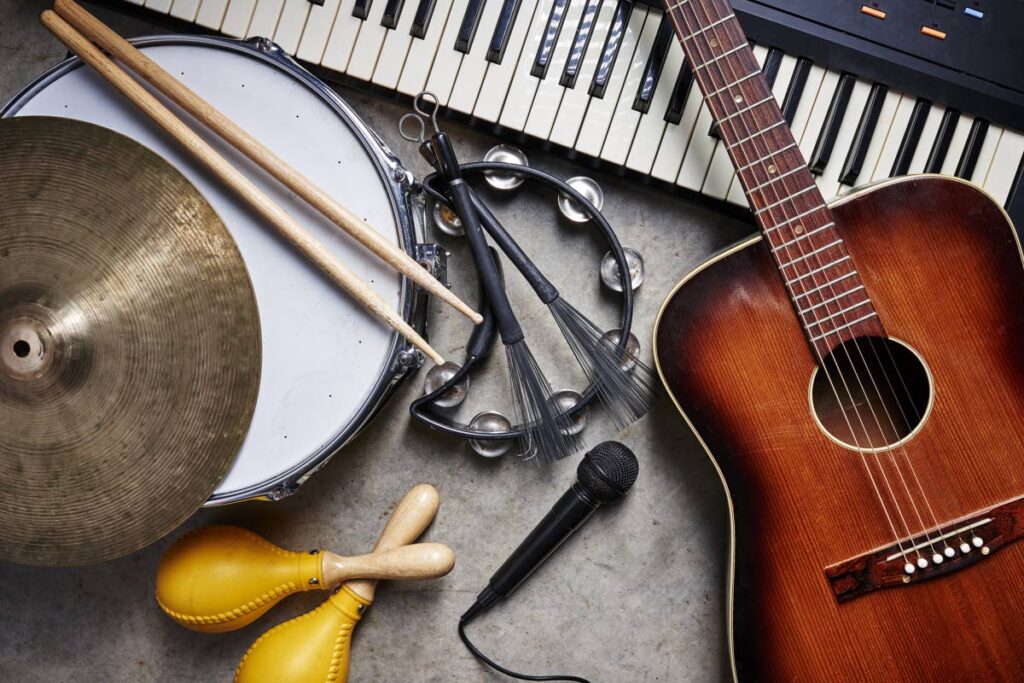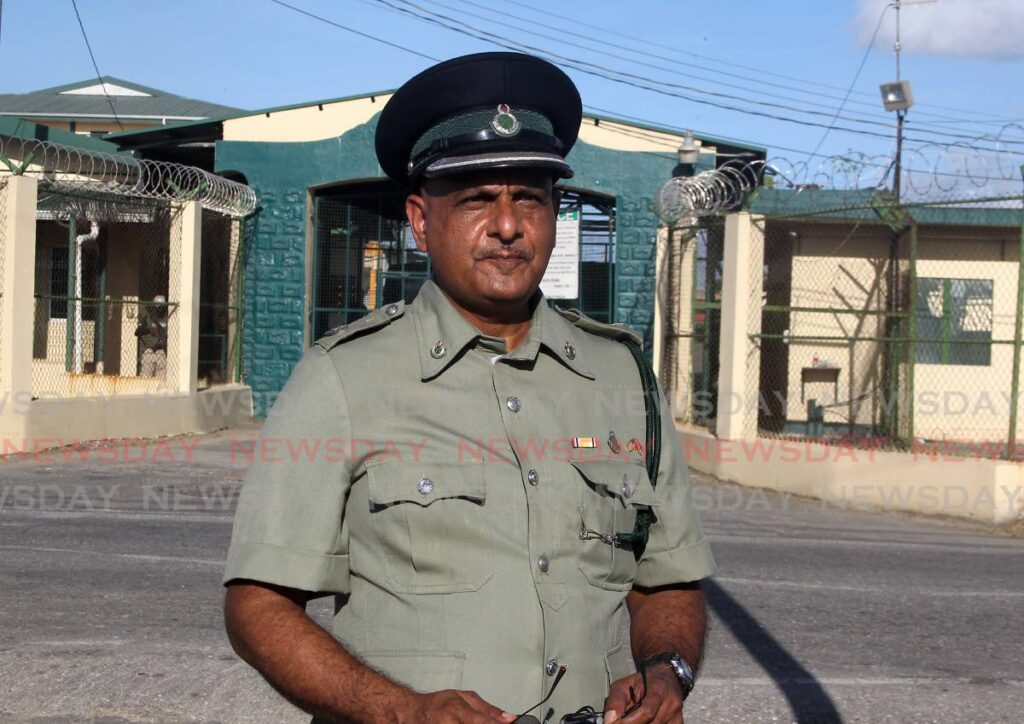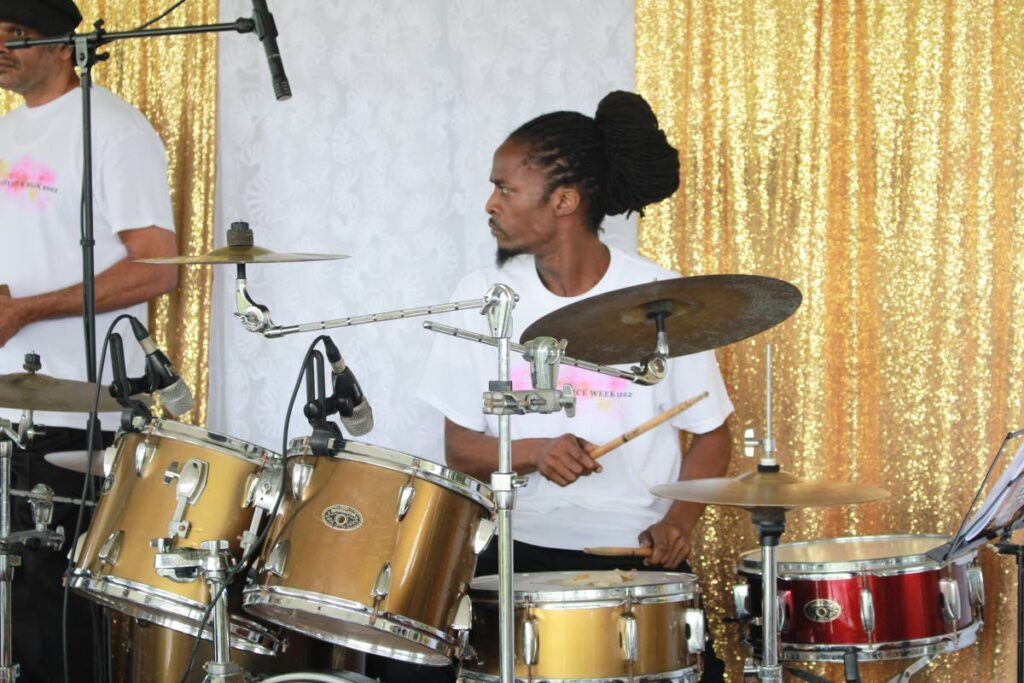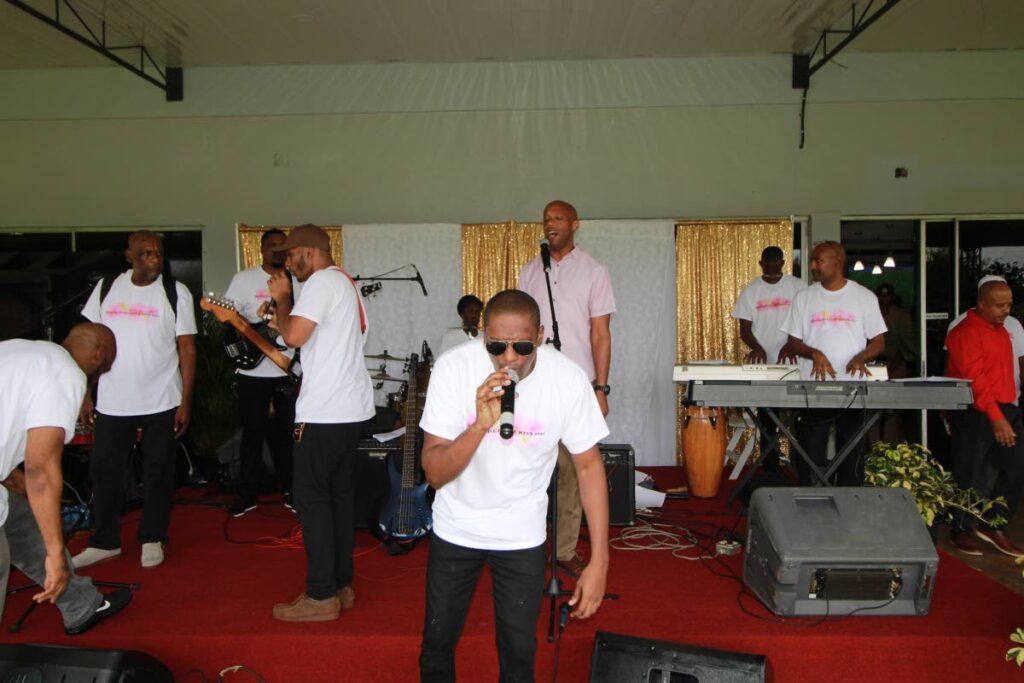Transforming prisoners through music

Maureen Clement, the educator and facilitator of the music programme at the Maximum Security Prison in Arouca, believes teaching is about transformation – exactly what she has done for scores of inmates over the past 16 years.
“The purpose of teaching is transformation. If I’m teaching you and I don’t see the transformation, then I have a problem. I am not doing what I’m supposed to be doing or what I’m doing isn’t working and I have to get something else that would work.
“So when I see the transformation, it’s not that I feel proud but I think the curriculum is working, which is what I’m there for.”
Clement, 65, was a teacher at what was then the Aranguez Junior Secondary School before working at the Science Centre at the National Institute of Higher Education, Research, Science and Technology (Niherst).
In 2000, she became the person in charge of the British Gas TT Science Bus which visited numerous schools and some of the prisons, including the Youth Training and Rehabilitation Centre.
“Sponsored by BG and the Ministry of Education, we went around and showed schools how science could be interactive. It also acted as a training ground for primary school teachers so they could see how to make science interactive in their classrooms and make it more fun.”
One day, she went to a function at the Maximum Security Prison (MSP) where “a kinda band” played the anthem. She approached a prison officer and told him there were errors. He asked if she could “fix” it, and if she could, he would organise for her to visit the prison and do so.
“Everything was put in place, I went, I fixed the anthem, and he asked, ‘Well what else you could do?’ and that’s how the programme got started in 2007.”

She told Sunday Newsday some of the inmates had completed Grade 1 in music theory with two prison officers who had some music knowledge. But many had limited exposure to academics and had literacy issues so she would teach spelling and reading as part of the programme.
Also, for one year, she arranged for a teacher from the Youth Training and Employment Partnership Programme (YTEPP) to do a literacy and numeracy programme with the inmates so they could understand the questions in the exams and answer them.
Clement told them she would take them to Grade 5 in one year, which she did, and did again three times over the next ten years. She said the programme was sustainable because, as those in the first group advanced, they taught the newer students. And the only student who ever failed, failed Grade 6 because he was too busy teaching others.
Since she was the only teacher, when she needed help with practical classes she brought in guitarists, drummers, pannists and other professional musicians to show them different techniques.
“The goal of the programme is not necessarily to make musicians out of these people. The whole idea of the programme is to help the men see there is another way and to make the best of the opportunities they may get and they don’t have to go back to a life of crime.
“This is what music teaches you – responsibility because you have to do work on your own, to work with others, and when there is failure or you don’t perform how you’re supposed to, you pick yourself back up and move on. When you hit against a wall, you must not stop. You must be able to take that pressure and keep pushing against that wall.”

She said when several students reached Grades 3 to 5, the band started to make significant improvements as the playing of the members improved and they started arranging music. The members played the acoustic and electric guitars, drums, keyboard and piano, and saxophone. They also played the steelpan on a 16-piece steelpan set which was sponsored by BG and tuned by Caribbean Secondary Education Certificate (CSEC) and Caribbean Advanced Proficiency Examination (CAPE) pan tuning students around 2016.
In 2018, the College of Science, Technology and Applied Arts of TT (Costaatt) agreed to arrange a certificate in music course for the prisoners that did not require CSEC or CAPE passes. For two semesters, prisoners who wanted to could then do the associate’s and then bachelor’s degree.
She said one prison officer who did the Grade 5 exam through her programme was assigned to the officers band. The prisons administration also gave officers the option to participate in the certificate programme where they got time off to go to classes. Nine officers joined the Costaatt programme, seven of whom were from the prison officers band and two officers who were associated with the inmates band, Musical Vibrations.
Unfortunately, the Costaatt programme came to a stop at the end of 2019 because the policy for the Government Assistance for Tuition Expenses Programme application changed, with one of those changes being that they were not employed and could not get an employed person to cosign for them.
Former convict: Music programme changed my life
Clement said in the beginning, many of the inmates attended the music programme to “cut jail” or “kill time.” There were behavioural issues, especially in the first cohort, where some did not want to do the homework, and there was cheating and infighting.
“They soon realised this is a serious programme and Ms Clement doh play. We lost one or two but most of them hunkered down and did the programme.
“Yes, we still have problems with them. Remember, in prison it’s about survival, so the things they do, sometimes they do just for survival. Many times we had to shut down the programme because they made a raid in somebody’s room and found something in the guitar.
“Then we would have to regroup, they would face whatever punishment, and if they are allowed back in the programme, they had to understand these momentary pleasures would sink you in the end. They have to keep focussed on what’s important.”
Clement said she saw vast improvements in those who remained in the programme in terms of grooming, attitudes and behaviour. There was greater co-operation between inmates, they became more disciplined and took responsibility for doing their own work, and they started striving for excellence.
She said some had never passed an exam before so when they did, it boosted their self-esteem and they wanted to do more.
Another motivation for those changes was that the band performed for family members on Mother’s Day, Father’s Day, for Christmas and Carnival. The band also played at events all over the country so they got to leave the prison for a time if they has a record of good behaviour.
She said not every student had to join the band officially as there were those who just wanted to sing, learn to play an instrument, or learn the theory, but they had to play with the band for practical lessons. Also, initially, inmates could join the band without taking theory classes, but eventually it became mandatory as the other band members were doing advanced work and they had to work within the band.

One year after she retired from BG in 2016, she said, Prison Fellowship International asked her to help co-ordinate the religious programme, called The Prisoners’ Journey (TPJ), at a regional level, implementing it in TT, Bahamas, Barbados, Guyana, Antigua, Jamaica, and the Cayman Islands.
“It’s a religious programme in every prison in TT that focusses on the idea that Christ was a prisoner, so are you, and how you could be more like Christ.”
Many of the men in the band joined TPJ. It helped them deal with their issues and many became tutors to the other prisoners.
Both programmes ran until the beginning of the pandemic in 2020, when the prisons closed its doors to “civilian-run” programmes owing to covid19 protocols.
One former prisoner, who did not wish to be named, said he joined the music programme because he always liked music and extempo, and played the conga drums.
He was a repeat offender who brought in contraband, namely whiskey, into the country but, during the time in the music programme, he was serving a seven-year sentence after being caught with arms and ammunition he claimed he was keeping for some friends.
He said, like most of the people who played an instrument in TT, he did so by ear and did not know how to read music. So at age 58, he took the music class as a challenge to himself and stayed in the class for about four years and four months. He also joined the Costaatt certificate programme where he studied tenor pan and had completed Grade 3 in the Clement's programme by the time his sentence ended in 2017. He attended several other programmes, including TPJ.
“The music class gave me a sense of direction, a sense of commitment to something because out there I was crazy and wild. I just wanted money and never had any direction. The class taught me discipline, patience, and tolerance. And I started to listen and absorb more.
“These programmes teach you a lot. Sometimes you think you’re mature but you miss important things. And those classes gave me the opportunity to be an all-rounded person.”
He told Sunday Newsday he was baptised two years ago and was now doing evangelical work. He had not returned to prison since getting baptised.
“It doesn’t have words to express my thanks to her (Clement). She’s like a mother figure to us in prison.”
Another prisoner, 55, said he went to prison in 2000 for 12 years for trafficking marijuana.
He said he did several courses and programmes in prison as he always tried to improve himself, so when Clement first introduced the class, he was eager to join.
He said he used to play the drums with several bands before he was imprisoned, and became a member of the MSP band where he learned to play the saxophone and steelpan. He studied up to Grade 6 but was released before he finished and before the Costaatt programme was implemented.
However, he got a distinction in Grade 5 and would tutor the newer students. He said many of the inmates could not read nor write so he would help them write letters and, eventually, he taught English and reading in the prison’s official school.
“When people got involved in the music class it was like their minds got distracted from other things. Because they wanted to be part of this programme they would not do stuff to get in trouble and be deprived of it. They would pay more attention to regulations while there. So it changed a lot of persons while I was there.”
He said teaching helped him to be more empathetic, have more patience, become more humble and less passive aggressive. He said it made him understand how easily a life could be destroyed, especially for those who had no support and seemed to have no options.
“These programmes gave a lot of people there hope, gave them something to look forward to. I saw it change a lot of people.
“And Ms Clement made a big difference in my life by allowing me to see my worth in that music programme.”
He said Clement stood up for them and they did not want to disappoint her, which led to improvements in attitude and behaviour. As a result, officers had more respect for the people in the music programme and would give those students more responsibility and freedom to move around.
New programme to have element of self-examination
Clement said she hopes to restart the music programme soon after determining who from the band is still in prison and if they are still interested in playing.
She also intends to start a new religious programme called Discipleship Bible Study that will focus on issue-based bible discussions and prayer. This change is because the new administration, under Prisons Commissioner Deopersad Ramoutar, has different ideas about how programmes should be run – ideas which she understands and with which she agrees.
“TPJ helped my music programme a lot because it gave them that area of introspection. So now, the prison administration is asking everyone to have a component of introspection in their programmes.
“They don’t want you to just come and teach them a skill otherwise you’re just making skilled criminals without any remorse or sense of responsibility. You have to address the internal self.”
She said many organisations had to re-do their programmes to include self-examination, which was one of the main reasons the prison programmes had not started earlier in the year.
The administration also asked that the organisations have a component training prison officers how to deliver the programme in case something keeps the facilitator away.
“Also, some of the officers have some of the same problems the inmates have. They are human beings after all. They have issues too and, depending on the programme, you may be able to help them as well.”
She said there is also tightened security where the officers has to check all the volunteers on the organisations’ lists.
She stressed that she has no problems with the delay as she understands the new security measures and the fact that the administration wants to ensure the programmes are delivering what the prisoners need for rehabilitation.


Comments
"Transforming prisoners through music"